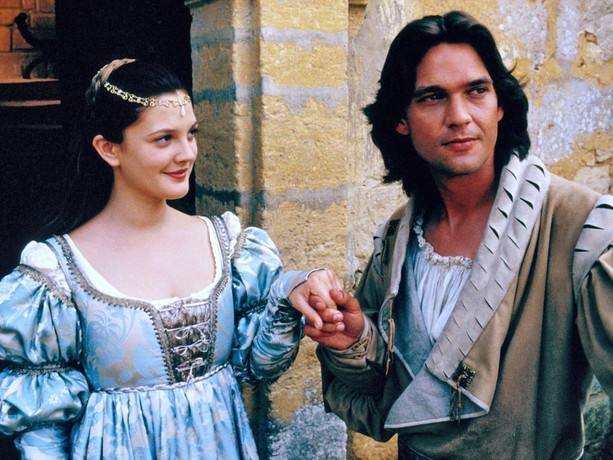Ever After (1998) is a romantic drama film directed by Andy Tennant and starring Drew Barrymore, Anjelica Huston, Dougray Scott, and Jeanne Moreau. Inspired by the classic fairy tale of Cinderella, this version presents a more realistic, historical take on the story, setting it in Renaissance-era France without magic or fantasy elements.
The film follows Danielle de Barbarac (Drew Barrymore), a kind and intelligent young woman who is mistreated by her wicked stepmother Rodmilla (Anjelica Huston) and her two stepsisters after the death of her father. Unlike traditional Cinderella tales, Danielle is portrayed as strong-willed, educated, and fiercely independent. She frequently stands up for herself and others, even disguising herself as a noblewoman to save a servant from being sent to the Americas.
Danielle’s path crosses with Prince Henry (Dougray Scott), a charming yet conflicted royal who is being pressured to marry for political reasons. Intrigued by Danielle’s intellect and courage, Henry gradually falls in love with her, unaware of her true identity. As their romance deepens, Danielle must keep her secret while navigating betrayal, jealousy, and social expectations.
The film emphasizes themes of self-worth, integrity, and equality. Instead of relying on a fairy godmother or magic, Danielle uses her wit and bravery to fight for her happiness. The climax sees her saving herself from enslavement, with Henry ultimately recognizing her worth and choosing her over a politically arranged marriage.
Ever After received praise for its feminist retelling of the Cinderella story, its strong performances—especially by Barrymore and Huston—and its lush visuals. It remains a beloved adaptation for audiences who appreciate fairy tales grounded in realism and led by a heroine who saves herself.
It’s a tale that proves happily ever after can be earned through courage and heart.



